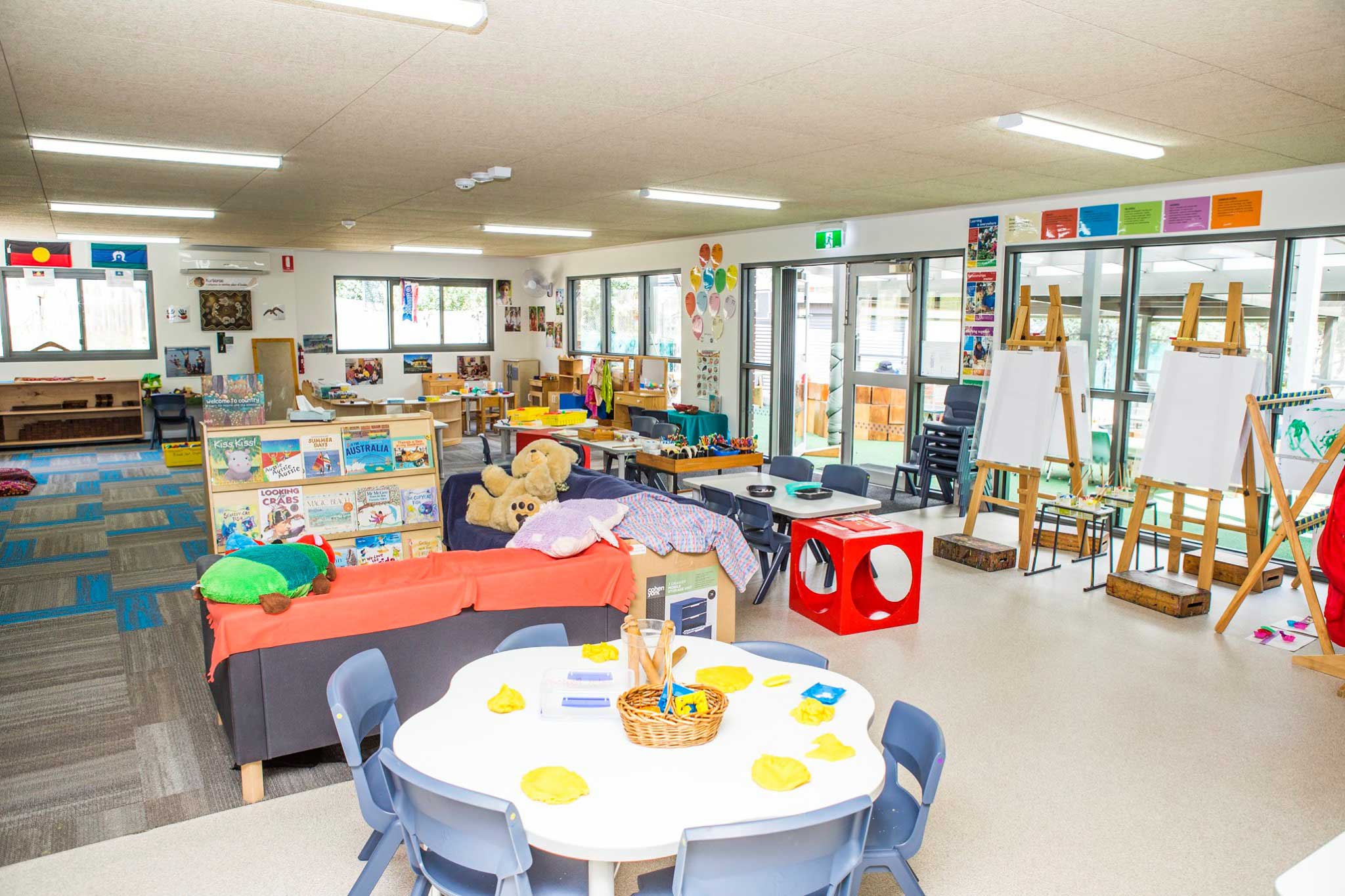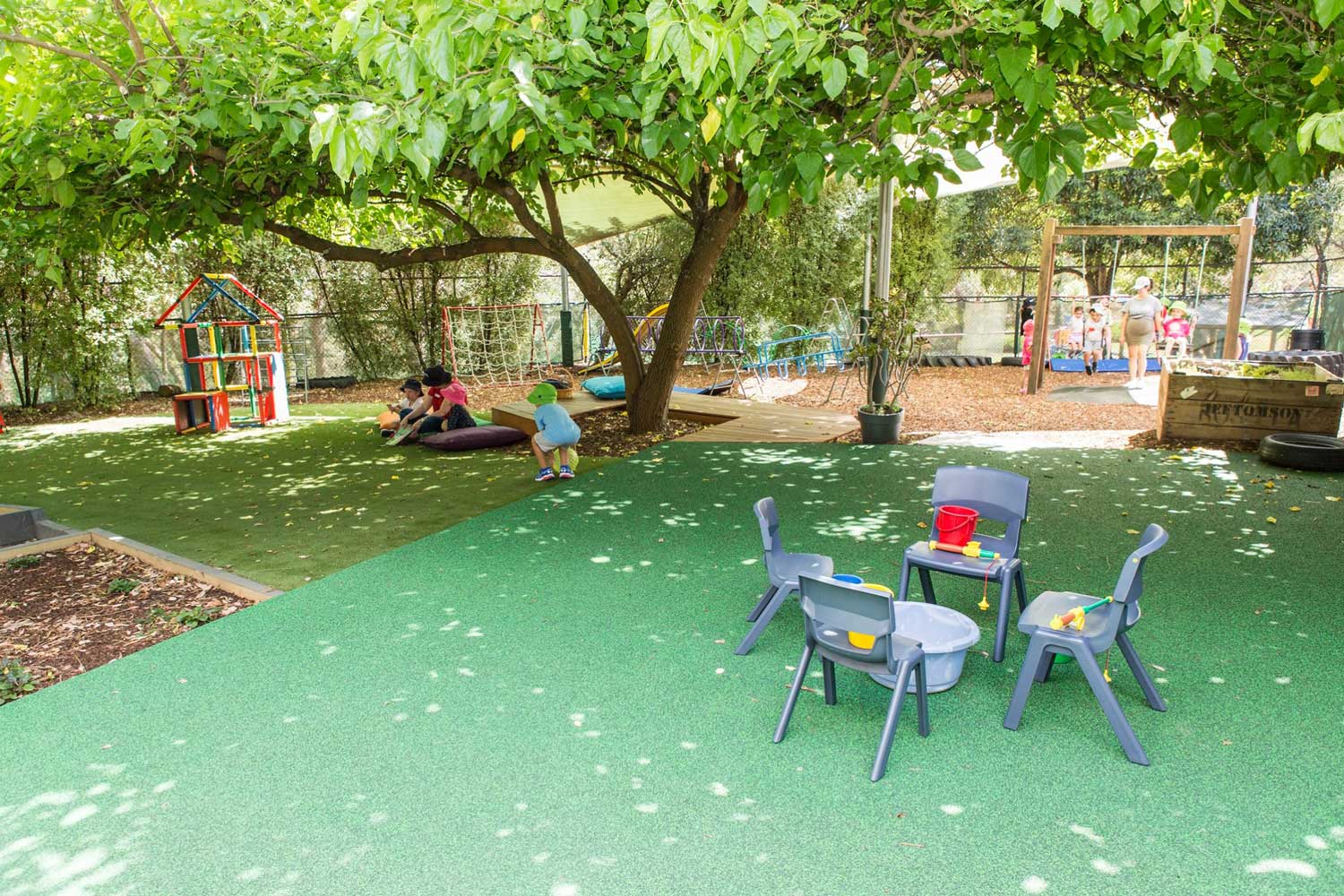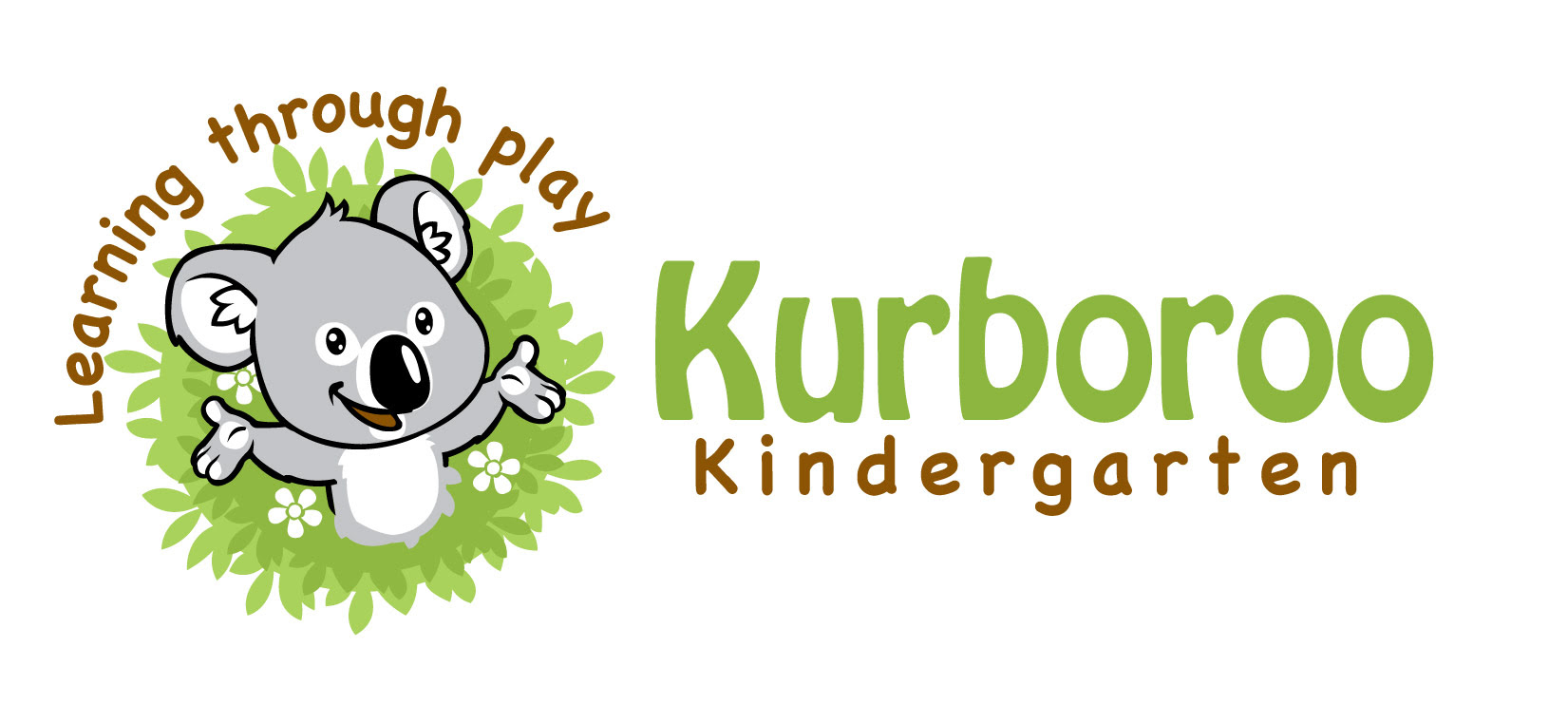Play is the most effective vehicle for enabling children to interact with the kindergarten environment at their own developmental levels and rates. Play and learning go hand in hand.
For children, play is active learning. The play activities you will see in the kindergarten program, both indoors and outdoors, are thoughtfully planned to encourage individual children to explore alone, alongside others and in small groups. Our program encompasses the new Victorian Early Years Learning and Development Framework. It provides experiences to assist each child to learn and develop in five areas (“outcomes”). These being:
Identity
Children have a strong sense of identity
Community
Children are connected with and contribute to their world
Wellbeing
Children have a strong sense of wellbeing
Learning
Children are confident and involved learners
Communicate
Children are effective communicators

Learning through play
Learning and development occurs as the children are engaged in their play at a wide range of experiences.
While playing alongside others, your child is learning complex social and emotional skills – taking turns, sharing ideas, expressing needs and feelings, coping with disappointment and success, and making sense of the world by acting out experiences. They will develop the abilities to make choices, think, reason, solve problems, ask questions, explore and create in order to understand.
In all of these experiences your child is strengthening and extending their understanding and use of language. They are listening, communicating, expanding and developing vocabulary and sentence structure.

Bush kinder
Bush kinder is a 2 hour a week program for the 4 year old groups.
Originating in Scandinavia, in the 1950's, the forest preschool approach has been used as a framework for Bush Kinder in Australia, where children are encouraged to play in, and learn from, our natural environment. Bush Kinder was developed in response to research that shows outdoor activities in a natural environment are extremely beneficial to children's health, wellbeing and development.
Key features of bush kinder include:
- Children spend long and regular periods of time in unstructured or semi-structured play in natural environments all year round
- Children experience the daily and seasonal fluctuations in weather
- No use of toys: the Bush Kinder experience enables children to play with whatever nature has provided, leaving only a footprint behind
- Children develop deeper conceptual understanding and respect for the natural environment
- Children develop a complex understanding of community and where they fit and offers better opportunities for children to be present and engage in real life experiences
Develop important skills
Communication, collaboration, conflict resolution and respecting others’ rights are very important skills, not just for now or school, but for life.
Research shows that successful learning is closely linked to the ability to display confident social skills. In all of these experiences we place strong emphasis on building strong, positive self-esteem. Each child’s ideas are valued and respected. We encourage them to express themselves and take responsibility for their own work and ideas. A child who feels good about themselves is not afraid to make mistakes or have a go at something new, different or challenging.
Our emphasis is on process: the process of choosing, handling, shaping and manipulating materials, discovering, creating, persevering and completing. We want children to adapt to situations when things don’t go as planned and we want them to experience satisfaction in what they have accomplished. We encourage children to try a range of experiences and develop confidence in areas they may not readily choose.
We hope this will assist you in understanding the wide range of skills and development we aim to foster within each child through our program and the support we provide to each individual child to help them learn and develop at their own individual rate and in their own individual way.
For more information on the Victorian Early Years Learning and Development Framework our program incorporates, click the links below.
3 Year-Old Session Times for 2026
Our Education Team:
- Wallabies: Katelin Watkins (Teacher), Melissa Rennie and Amy
Monday
Tuesday
-
8:00am - 1:00pm
Wednesday
-
8:00am - 11:30am
Thursday
-
12:30pm - 4:30pm
Friday
-
8:00am - 11:30am
4 Year-Old Session Times for 2026
Our Education Team:
-
Koalas: Lisa Waters (Educator) with Kylie Warburton (Assistant), Karen Sproat (Assistant)
-
Possums: Liz Thompson (Educator) with Angela Willey (Assistant), Kim Evans (Assistant) and Caterina Ferraro (Lunch Assistant)
Monday
-
8:30am-4:00pm
Tuesday
-
1:30pm - 5:00pm
Wednesday
-
8:30am - 4:00pm
Thursday
-
8:00am - 12:00pm
Friday
-
8:30am - 4:00pm
3 Year-Old Mixed Aged Session Times for 2025
Our Education Team:
Emus: Lisa Waters (Educator) with Kylie Warburton (Assistant), Karen Sproat (Assistant)
Monday
-
11:00am-4:00pm
Tuesday
Wednesday
Thursday
-
8:00am - 12:00pm
Friday
Kindergarten Fees
The Victorian Government provides funding to support children to access a high quality kindergarten program in the two years before they start school. This helps to ensure all Victorian children get the best start in life.
From 2023, the Victorian Government is making kindergarten programs free for three and four-year-old children – saving you and your family up to $2,500 per year for their program. Free Kinder is a critical component of the Victorian Government’s Best Start, Best Life reform.
Funding for your child’s free kinder program is provided to our service directly from the Victorian Government, so you will not be required to make any fee payments for three and four-year-old kinder programs from 2023.
In line with the Victorian Government’s requirements for Free Kinder, your child can access a 15-hour kindergarten program (or shorter Three-Year-Old Kindergarten where less than 15 hours are offered) for free. The only fees that you may be asked to pay are for one-off excursions costs (e.g. transport and entry costs)
Your child can only be funded for a kindergarten program place at one service at any one time and only for one year in a Three-Year-Old Kindergarten program and one year in a Four-Year-Old Kindergarten program (unless your child is assessed as being eligible for a second year of Four-Year-Old Kindergarten by your child’s kindergarten teacher).
